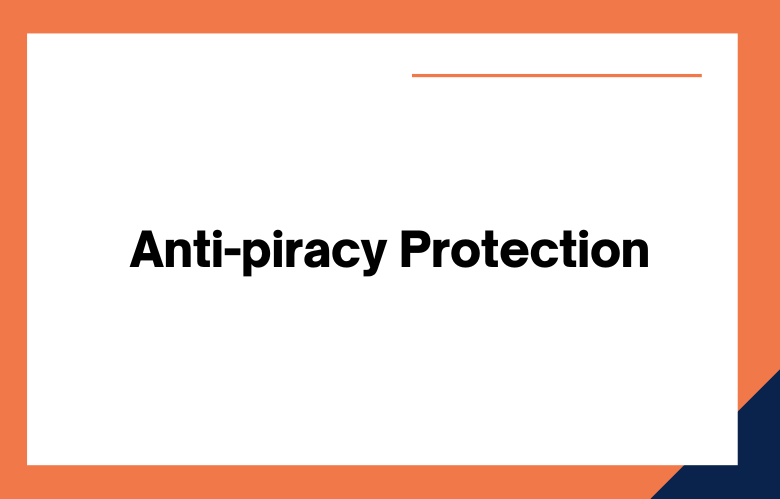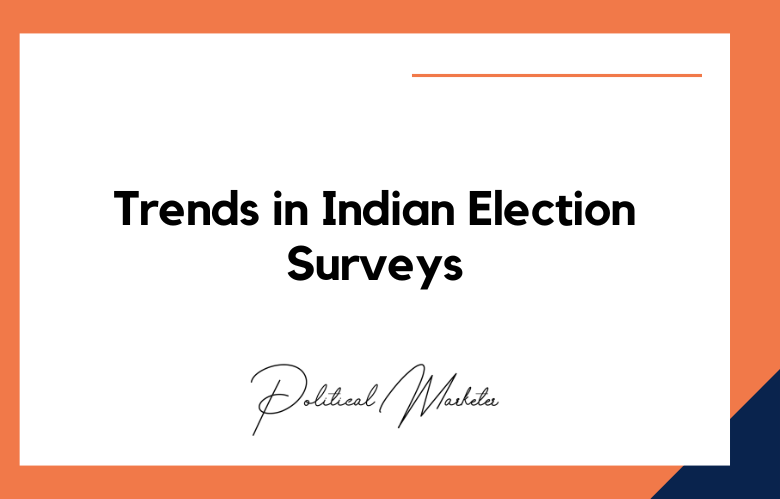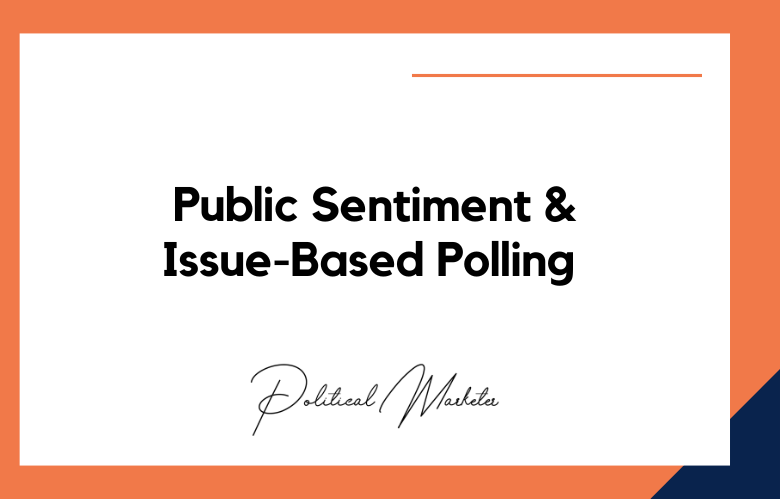In today’s digital world, piracy is a rampant issue that affects all industries. However, since the internet and social media emerged, politicians and political campaigns have increasingly become vulnerable to piracy attacks.
Piracy, which involves the unauthorized use of content, spreading fake news, and cyber-attacks, can pose a significant threat to political leaders and campaigns.
Therefore, it is essential to focus on anti-piracy protection to ensure the integrity and authenticity of political campaigns. This paper explores anti-piracy protection for political campaigns and political leaders.
What Anti-Piracy measures are commonly used in Political Campaigns?
Political campaigns can be a breeding ground for piracy, as political advertisements, speeches, and other campaign materials are frequently disseminated through various media channels.
With so much at stake, it is no surprise that political campaigns take piracy seriously and use anti-piracy measures to protect their intellectual property.
One of the most commonly used anti-piracy measures is digital watermarking. This involves embedding a unique identifier in campaign materials, which makes it possible to track down the origin of any unauthorized copies.
Digital watermarking is particularly effective for online content, allowing campaigns to identify and remove pirated materials quickly.
Another anti-piracy measure used in political campaigns is monitoring social media channels. Campaigns use specialized tools to watch social media channels for mentions of their campaign materials and take appropriate action when a violation is detected.
This may involve sending a takedown notice or even pursuing legal action against the infringing party.
How effective are Anti-Piracy Measures in Political Campaigns?
In recent years, political campaigns around the world have been plagued by the issue of piracy.
The unauthorized use of political campaign materials, such as logos, videos, posters, speeches, and slogans, has become a significant concern for political parties and candidates.
Various anti-piracy measures have been implemented to counter such incidents and protect campaign materials from being stolen or distributed without permission.
However, the question remains: how effective are these measures in Political Campaigns?
Several studies have shown that anti-piracy measures can effectively prevent the unauthorized use of political campaign materials.
For instance, watermarking is one measure that can embed digital signatures in the content that identify the owner and the authorized user.
This technique is an effective deterrent against piracy as it enables the identification of the originator of the materials in question and discourages potential pirates.
What are the legal consequences of online piracy in Political Campaigns?
Online piracy in political campaigns involves the unauthorized use of copyrighted material without obtaining the appropriate permissions from the rights holders.
This can include using music, videos, images, and other forms of content in campaign advertisements, social media posts, and other promotional materials.
The legal consequences of online piracy in political campaigns can be severe. They can result in civil and criminal liability for the campaign and the individual responsible for the infringement.
Copyright owners can seek damages for the unauthorized use of their materials, including monetary compensation and injunctive relief to prevent further use of the copyrighted work.
In addition, online piracy in political campaigns can lead to reputational damage for the campaign, mainly if the infringement is seen as a deliberate attempt to steal intellectual property for political gain.
Such actions can harm the public’s trust in the campaign and the political process, which can have long-lasting effects on the campaign’s ability to win votes and achieve its goals.
What are the most effective anti-piracy measures in political campaigns?
Registering trademarks:
Political campaigns should register their trademarks with relevant intellectual property organizations and agencies to prevent third-party vendors from capitalizing on their brand without authorization.
Such registration will enable campaigns to take legal action against infringements on their intellectual property rights.
Monitoring online marketplaces:
Political campaigns should regularly monitor online marketplaces for counterfeit merchandise featuring their brand.
They should engage a third-party service provider to monitor these platforms and take down pirated products in real time.
Partnering with accredited vendors:
Political campaigns can establish partnerships with accredited vendors to secure the production of official merchandise.
By partnering with reputable vendors, they can ensure the authenticity of their merchandise while preventing the proliferation of counterfeit products in the market.
Educating supporters:
Political campaigns can educate supporters and the general public on buying only authorized merchandise.
Campaigns can discourage the production and sale of pirated products by raising awareness about the dangers of buying counterfeit goods.
How do political campaigns measure the effectiveness of their anti-piracy measures?
Political campaigns employ anti-piracy measures to deter the illicit sharing and downloading of copyrighted materials.
These measures range from technological solutions, such as digital rights management software, to legal solutions, such as increasing penalties for piracy offenses. However, measuring the effectiveness of these measures presents a challenge for political campaigners.
One key metric used to evaluate the effectiveness of anti-piracy measures is the reduction in piracy rates after they are implemented.
Campaigners may analyze data on peer-to-peer file-sharing sites and other data sources, such as search engine analytics and social media sentiment analysis, to gauge changes in the levels of piracy activity before and after implementing anti-piracy measures.
What are the adverse effects of anti-piracy Political Campaigns on piracy?
Anti-piracy campaigns can hurt piracy by making it seem more attractive to potential pirates.
Anti-piracy campaigns often demonize pirates and portray them as criminals, making potential pirates feel marginalized.
Anti-piracy campaigns can make it seem like piracy is a victimless crime, encouraging more people to engage in piracy.
Anti-piracy campaigns often focus on the adverse effects of piracy, such as lost revenue and jobs, rather than the positive effects, such as increased access to knowledge and information.
Anti-piracy campaigns can inadvertently promote piracy by providing free advertising for pirated content.
Anti-piracy campaigns can be costly and ineffective in reducing piracy rates.
Anti-piracy campaigns can chill freedom of expression and creativity. They may discourage people from creating or sharing new works out of fear of being accused of piracy.
Anti-piracy campaigns can cause collateral damage by targeting legitimate businesses and consumers not engaged in piracy.
Anti-piracy campaigns can create a false sense of security, as they may give people the impression that they no longer need to take precautions against becoming a victim of piracy.
How can anti-piracy Political Campaigns be improved to be more effective?
As piracy continues to be a persistent issue in the entertainment industry, political campaigns against it have become increasingly important.
However, the effectiveness of these campaigns is often debated. Several factors should be considered to improve the effectiveness of anti-piracy political campaigns.
Firstly, it is essential to understand the root causes of piracy. Many people resort to piracy due to limited access to legal means of obtaining content.
This is particularly prevalent in developing countries, where a lack of infrastructure for legal content distribution and high prices result in widespread piracy.
Therefore, anti-piracy political campaigns must also address these issues by advocating for greater accessibility to legal means of content distribution.
What are the negative attitudes toward anti-piracy Political Campaigns?
They’re ineffective:
One of the primary criticisms of anti-piracy campaigns is that they’re ineffective. Critics argue that these campaigns do little to deter people from pirating content and that the money spent on them would be better spent on other initiatives.
They’re a waste of money:
Another common criticism of anti-piracy campaigns is that they waste money. These campaigns can be costly to produce and implement, and there’s no guarantee they’ll effectively reduce piracy rates.
They can be counterproductive.
Some also argue that anti-piracy campaigns can be counterproductive, as they may encourage people to pirate content out of spite or defiance.
These campaigns often rely on fear-mongering and scare tactics, which can further alienate potential customers.
They’re often misleading.
Anti-piracy campaigns are also often criticized for being misleading or inaccurate.
For example, many campaigns warn potential pirates that they could face severe legal penalties for downloading copyrighted material when the chances of being caught and punished are relatively low.
They target the wrong people.
Another common criticism of anti-piracy campaigns is that they often target the wrong people.
For example, many campaigns focus on deterring casual users from pirating content, even though most piracy is done by commercial operations, who are much less likely to be deterred by these campaigns.
They demonize consumers.
Many anti-piracy campaigns demonize consumers by portraying them as criminals or thieves. This can create a hostile environment and make people less likely to respect copyright law or support legitimate businesses.
Conclusion:
Political campaigns and leaders must recognize the risks to their integrity, authenticity, and reputation posed by piracy. In today’s digital world, it is essential to focus on anti-piracy protection.
Steps such as monitoring the internet, being alert, correcting misinformation, introducing digital tools and services, preparing a security strategy, adopting HTTPS and two-factor authentication, and procedures for complying with copyright laws can help protect against piracy attacks.
In conclusion, investing in anti-piracy protection could be crucial to a successful political campaign, and any political entity must take the necessary measures to protect itself against piracy attacks.
Call: +91 9848321284
Email: [email protected]
Anti-piracy Protection for Political Leaders & Political Campaigns: FAQs
What is anti-piracy protection in a political context?
Anti-piracy protection in politics refers to safeguarding a candidate’s or campaign’s content—such as videos, slogans, speeches, and digital assets—from unauthorized copying, misuse, or distribution.
Why do political leaders need anti-piracy measures?
Because unauthorized use of political content can distort messaging, mislead the public, damage reputation, and create confusion among voters.
What types of content are most commonly pirated during campaigns?
Campaign videos, promotional graphics, speeches, manifestos, logos, and branded visuals are frequently copied and misused.
How can stolen political content be misused?
It can be edited out of context, used to spread misinformation, spoofed in parody without disclaimers, or deployed in opposition campaigns to mislead voters.
What tools are used for anti-piracy detection?
AI-powered content tracking tools, watermarking, digital fingerprinting, reverse image search engines, and copyright monitoring platforms are commonly used.
How does content fingerprinting help in political campaigns?
It creates a unique ID for original content, allowing automated systems to detect copies online, even if they’ve been slightly altered.
Can social media platforms help combat political content piracy?
Yes. Platforms like Facebook, YouTube, and Twitter allow copyright takedown requests and can suspend repeat infringers.
What role do DMCA takedowns play in political anti-piracy?
The DMCA allows campaign teams to request the removal of unauthorized content from websites and platforms under U.S. copyright law.
Are there legal protections for political branding and identity?
Yes. Political logos, slogans, and other creative content can be protected under intellectual property laws including trademarks and copyrights.
How fast should campaigns act on piracy cases?
Immediately. The faster the response, the less damage pirated content can cause in shaping voter opinion or misrepresenting messaging.
Can deepfake videos be considered a form of political piracy?
Yes. Deepfakes that use real campaign footage or voices without consent are a major threat and fall under both piracy and misinformation.
Is it expensive to implement anti-piracy protection for campaigns?
Costs vary, but early investment in digital rights management and monitoring tools is more affordable than the cost of crisis management or legal battles.
How can political teams monitor for content piracy in real time?
Using real-time alerts, AI-driven monitoring dashboards, and daily scans of social platforms, news aggregators, and video-sharing sites.
Do campaign websites and apps need piracy protection too?
Absolutely. They must be secured against content scraping, unauthorized embedding, and cloning.
Can watermarks help prevent political content theft?
Yes. Visible or invisible watermarks make it easier to prove ownership and discourage misuse of campaign visuals.
How can campaigns collaborate with legal experts on piracy?
By hiring IP lawyers or legal consultants to create enforcement protocols, issue takedown notices, and prepare for potential litigation.
Are international laws applicable for content piracy in political campaigns?
To an extent. If your content is misused abroad, international copyright treaties like the Berne Convention may provide some protection.
How can anti-piracy efforts protect candidate reputation?
By preventing the spread of fake content, unauthorized edits, and misleading associations that can erode public trust.
What is the role of the digital marketing team in anti-piracy?
They monitor performance data, track unauthorized content circulation, coordinate takedown efforts, and protect brand consistency.
Should politicians proactively register copyrights and trademarks?
Yes. Registering key campaign content gives legal standing and enhances enforcement power in piracy and infringement cases.











